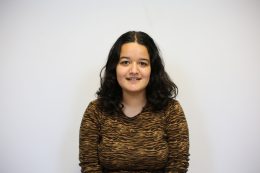
This month, Senator Elizabeth Warren issued a statement saying that the genetic testing she had done confirmed that she was distantly of Native American descent. This came after President Donald Trump called on her to take a test to confirm her heritage, which he claimed he was skeptical of.
This announcement received backlash from different Native American leaders. Cherokee Nation Secretary of State Chuck Hoskin Jr. wrote in a statement, “Using a DNA test to lay claim to any connection to the Cherokee Nation or any tribal nation, even vaguely, is inappropriate and wrong.” While Warren has since clarified that she acknowledges the difference between DNA and tribal affiliation, the rise in popularity of at-home DNA testing kits has raised questions about the role of genealogy in how people present themselves.
For centuries, the world has revolved around whiteness, with people being judged and treated based on their relative proximity to it. The characteristics and customs of nonwhite people have been simultaneously demonized and exoticized. In recent years, it has become palatable for white people to learn more about their ancestry, and many seem eager to learn that they descend from non-Europeans. At a genetic geneaology meeting on how to encourage more people to send their DNA to genealogy sites, an audience member joked, “Tell them they’ll find they’re Native American and they’ll all go.” Despite the fact that white people and institutions have spent centuries maintaining whiteness as the pinnacle of superiority and purity, there remains a desire to have a “cultured” and “ethnic” ancestry. Services like Ancestry.com Inc. and 23andMe make it easy to “pick and choose which fractional parts of genetic identity to highlight when it makes for good cocktail-party conversation.”
It is important to realize that “cultural identity” and “DNA” are not synonyms and should not be treated as such. Genealogy tests advertise their services as an opportunity to explore one’s newly discovered ethnic roots. In an ad for its product, Ancestry.com said, “Does your ethnicity estimate show you’re 9% Nigerian? Try making some Jollof rice.” DNA test results are not a free pass to adopt the customs of the countries your hypothetical ancestors are from. This applies especially to white people who will never know what it is like to live as a perceived racial minority. A white person who learns they are 9 percent Nigerian is able to eat Jollof rice for dinner while comfortably avoiding all of the potential discrimination that someone who isn’t visibly white might face. Sarah Zhang, staff writer at The Atlantic, added, “If you speak no German, celebrate no German traditions, have never cooked German food, and know no Germans, what connection is there, really? Cultural identity is the sum total of all of these experiences. DNA alone does not supersede it.”
When delivering results, DNA testing companies use geographic regions rather than racial categories. This method creates a colorblind environment that makes it seem like all races have always peacefully coexisted and that any race-mixing was just a side effect of mutual respect and love. This completely glosses over the long and violent history of slavery and colonization. For example, African Americans have, on average, 24 percent European ancestry. This can often be explained by the systematic rape of black slaves by their white masters. Romanticizing these “relationships” is dangerous and disingenuous. When people learn about their ancestry, they should take care to acknowledge the potential trauma that permeates their personal history.
In order to be transparent, I should mention that I sent my DNA to Ancestry.com when I got a kit last Christmas. The results I received were unsurprising and confirmed basically everything I’ve ever been told about my ancestry. Wanting to learn more about where your family comes from is not necessarily a bad thing. However, it is important to remember the limitations of genealogy testing and to tread carefully if you decide to have it done.
Annick Tabb is a junior double-majoring in political science and English.


